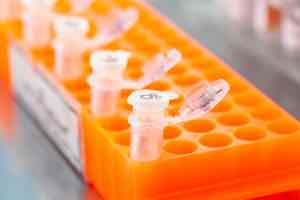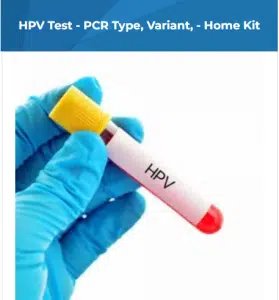
The Complete Lab Count (CBC) Test is valuable for diagnosing and monitoring nutritional deficiencies. Adequate nutrition is crucial for optimal health, and a lack of vital nutrients can notably impact overall health. It provides an important understanding of the body’s cellular health, including red blood cells (RBCs), white blood cells (WBCs), and platelets. An HPV infection can also be one reason for this lack of nutrients. For this, HPV DNA testing is important. This article will explore the role, benefits, and importance of CBC Lab testing in identifying and managing the deficit of nutrients, pointing out its significance in findings, monitoring, and making decisions related to treatment and medicine.
Diagnosing Nutritional Deficiencies
- Iron Deficiency Anemia: Iron deficiency is among the most common nutritional deficiencies worldwide. This blood exam helps diagnose iron deficiency anaemia by analyzing the RBC count, haemoglobin levels, and hematocrit. These values may be lower than normal in cases of iron deficiency due to inadequate iron presence for RBC production.
- Vitamin B12 Deficiency: Vitamin B12 plays a vital role in forming RBCs. A lack of vitamin B12 can lead to anaemia, a condition known for larger, immature RBCs. This exam can reveal problems in RBC size (mean corpuscular volume, or MCV) and shows the possibility of vitamin B12 deficit.
Monitoring Nutritional Deficiencies
- Treatment Effectiveness: A complete count exam is necessary to monitor the effects of treatment for nutrient deficits. For instance, in cases of lack of iron anaemia, regular monitoring helps track progress in developing RBC count, haemoglobin levels, and hematocrit after iron supplementation. These exams enable medical professionals to assess whether the treatment is working.
- Disease Progression: If left without proper treatment, these deficits can worsen and lead to future problems. Regular monitoring is valuable in monitoring disease growth and development and helps detect any fall or drop in blood cell counts. It also allows medical professionals to intervene on time and adjust treatment plans.
Management and Treatment Decision-Making
- Nutritional Counseling: The results of this blood exam provide valuable information for doctors and medical professionals to offer good dietary meetings. For instance, if this exam shows low levels of certain elements, such as iron, individuals can be advised to take specific foods to address the absence.
- Treatment Planning: The CBC report is crucial for determining the lack of nutrients in treatment decisions. Assessing blood cell parameters helps determine the appropriate treatment approach. This may involve dietary changes, additions, or further monitoring to identify the causes of the absence.
- Identifying Coexisting Conditions: These lacks can sometimes be related to other health conditions. The CBC Lab Panel can help identify abnormal blood cell counts that may suggest other medical issues. It allows for complete evaluation and appropriate management.
Role of Infection in Nutritional Deficiencies
Human Papillomavirus (HPV) infection is mainly known for its link with cervical cancer and genital warts. However, it may also indirectly play a role in nutritional deficiencies. HPV sampling is used to find these conditions.
Human papillomavirus infection can affect the reproductive organs, leading to changes in the cervical tissue. These changes can sometimes lead to cervical cancer. This condition makes it necessary to perform various treatments, such as surgery. These treatments can impact an individual’s nutritional status.
Furthermore, individuals with advanced or constant HPV-related cancers may have high dietary demands due to their illness. The high energy use and nutrient needs of the body, along with potential nutrient absorption and utilization challenges, can become the reason for these lacks.
Individuals with related conditions must maintain good nutrition to support their overall health and aid recovery. Healthcare workers may advise addressing specific nutrient deficiencies and optimizing their status during and after treatment. While infection may not directly cause these deficits, the consequences of its related conditions and their treatments can impact an individual’s health status.
Role of Exams in Dealing with Nutritional Deficiencies

Role of a Lab check
CBC Home monitoring is crucial in dealing with nutritional deficiencies indirectly by helping stop and manage HPV-related conditions. By finding this infection early on, doctors can promptly start appropriate treatments. It will help lessen the impact of these conditions on the person’s nutritional status.
This exam, particularly through regular Pap smears or HPV DNA exams, aids in finding risky strains. Early findings of this infection allow for timely interventions, including close monitoring, treatment of precancerous lesions, or vaccination against HPV. By addressing the disease promptly, we can lessen the risk of developing advanced stages of cancer. This can also help in making subsequent treatments that may impact health status.
Effective management of related conditions can help individuals maintain their overall health and lessen the nutritional consequences that may arise from aggressive treatments. By preventing or treating cervical dysplasia or cancer, individuals can avoid or ease invasive procedures, such as surgery, radiation therapy, or chemotherapy. These steps can affect hunger, nutrient input, and overall health status.
Also, properly managing this condition involves a joint approach that may include HPV Home testing and nutritional counselling. Medical workers can offer guidance by
- A proper balanced diet,
- By making sure to take an adequate nutrient intake,
- Control possible side effects of treatments that may impact nutrition, such as taste changes or difficulty swallowing.
Conclusion
The CBC Complete profile test is a crucial investigation that helps to find, monitor, and control the lack of nutrition. Assessing key blood cell limits aids in the identification of iron deficiency anaemia, vitamin B12 deficit, and other conditions. This exam also helps monitor the benefits of treatment, track disease growth, guide nutritional counselling and help make proper treatment decisions. Regular monitoring with a complete blood count exam is crucial in maintaining optimal health by finding and addressing the nutrition deficit on time. Moreover, HPV Type testing also plays a vital role in dealing with nutritional deficiencies indirectly by finding and effectively managing related conditions early.
